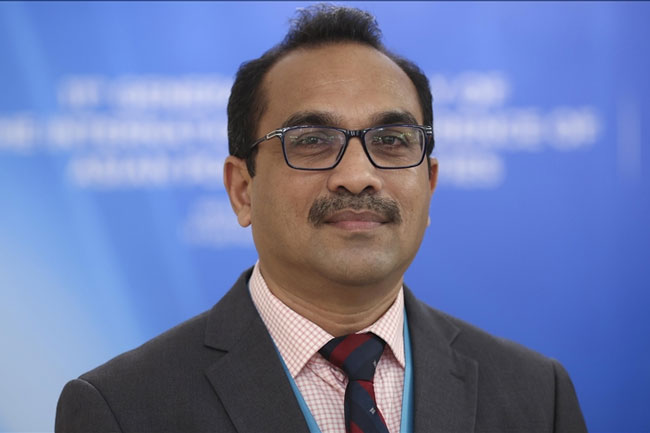Sri Lanka received many unrealistic foreign loans for unnecessary projects Bimal Ratnayake
November 27, 2022 11:17 pm
Sri Lanka can learn a lot from Türkiye about accommodating diverse people and cultures, according to a senior politician from the South Asian nation.
“Türkiye is one of the great countries when you consider its nature as well as (from) the historical” perspective, said Bimal Rathnayake of the People’s Liberation Front.
“We have been observing (that) Türkiye has become a popular destination … for Sri Lankan people (as well), because it is a house which can accommodate all cultures,” Rathnayake told Anadolu Agency. “Sri Lanka should also focus on how to accommodate all the cultures, all the religions, all the people of other countries.”
He said the South Asian nation has also a lot of historical sites laced with beautiful natural sites.
“(But) I think that this (diversity) is one thing we can learn” from Türkiye, he said.
Rathnayake, who represented constituents in parliament for 15 years, was in the Turkish metropolis of Istanbul to attend the three-day International Conference of Asian Political Parties (ICAPP).
The first Turkish diplomatic contact with Sri Lanka was in 1864 when the Ottoman State opened an honorary consulate on the island nation.
Türkiye was one of the first countries to recognize Sri Lanka following that nation’s independence in 1948.
Ties have grown since a tsunami rocked Sri Lanka in 2004 and President Recep Tayyip Erdogan visited the country at the time.
The current trade figure between the two countries stands at more than $100 million.
Neoliberal economics reason for financial crisis
Rathnayake said Sri Lanka underwent a financial crisis because “we have been following neoliberal economic agenda which neglected our agriculture, local industries, and (due to which we) got loans for just a show of things.”
“That is the main reason,” he claimed.
Sri Lanka has been under a state of emergency since April when mass protests began against the government’s handling of the economy.
Crippled by a shortage of foreign exchange reserves after the collapse of the tourism-dependent economy, the country of 22 million has defaulted on all its foreign debt.
It has been unable to pay for food, fuel, and other necessities, with a fuel shortage causing daily power outages. Schools have been closed and government employees have been asked to work from home.
In July, Ranil Wickremesinghe was sworn in as the new president of the country which is grappling with its worst financial crisis.
Rathnayake said the country received “lots of unrealistic foreign loans for unnecessary projects.”
“And the third (reason) is corruption,” he said.
“These (reasons) led to the economic crisis of the country,” said Rathnayake, adding the coronavirus pandemic “brought us to the edge.”
Regarding loans from China, Rathnayake said the hue and cry about the loans from Beijing was “an exaggeration … demonizing China … by the US and US-led Western media.”
“China also has given lots of loans. And our rulers have completely wasted that money,” he said, detailing the composition of loans received by Sri Lanka.
Out of total loans, “42% are from global private financial comebacks, 22% from multilateral agencies like the World Bank, the IMF and the Asian Development Bank, 10% from Japan, 11% from India and 10% from China,” he said.
To move out of economic difficulties, Rathnayake said, “what we need is not competition (but) solidarity” across Asia and the world.
“So, the way out from (financial) crisis is that, as nations, we must have an environment, (to) decide on our economic and social agendas. Those things should not be imposed from Washington or London or Brussels or anywhere,” he said, lauding the ICAPP for “strengthening the sovereignty of nations.”
The ICAPP, Asia’s oldest and largest organization of political parties, was launched in 2000 in the Philippines and held its biannual conference earlier this month in Istanbul.
Source -Anadolu Agency
-Agencies












